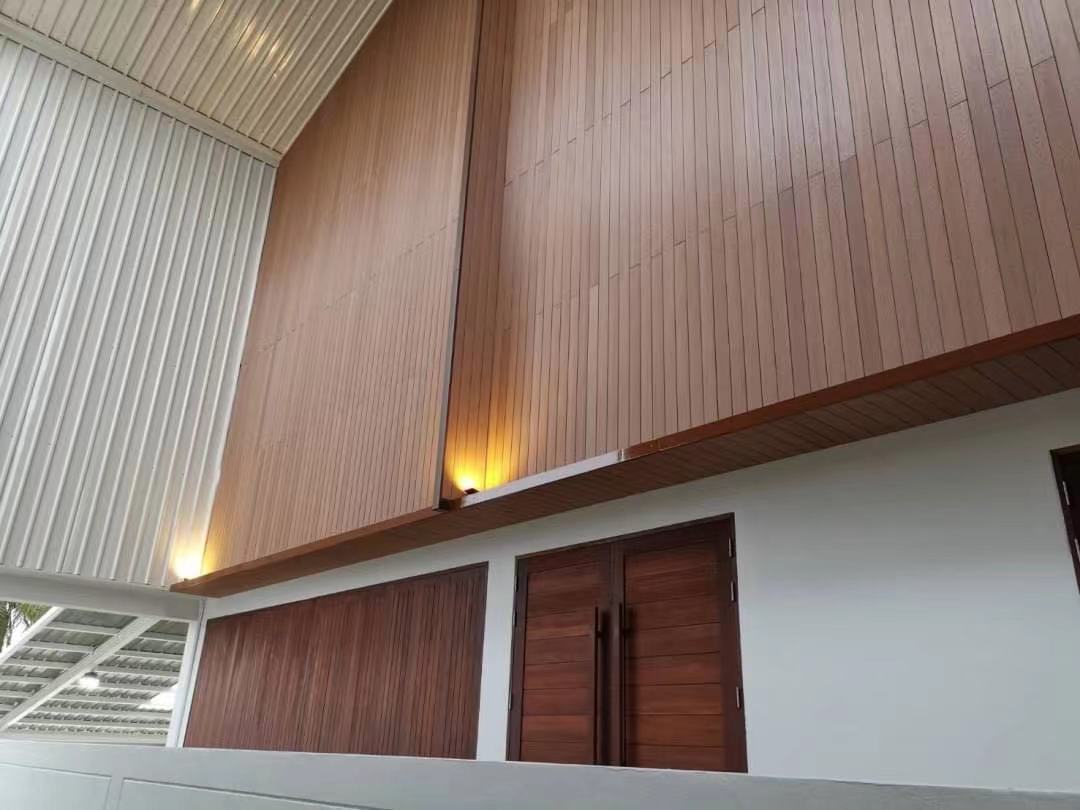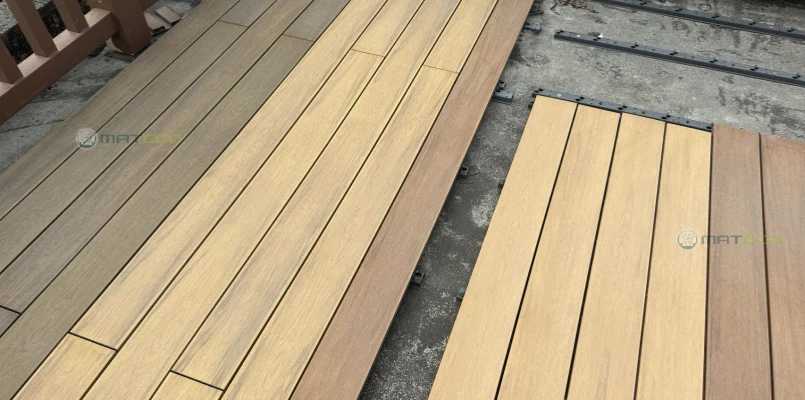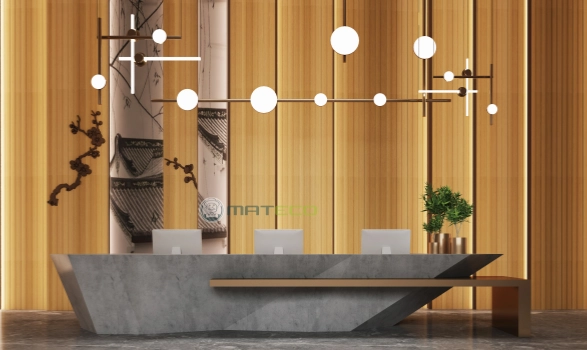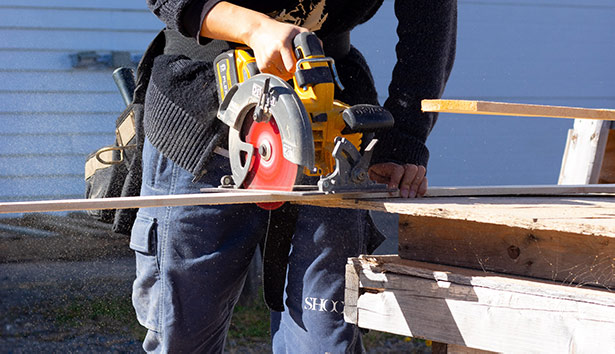Composite Wall Siding: Are They a Healthy Choice for Your Space?
In the ever-evolving world of interior design, homeowners and designers alike are constantly seeking materials that elevate a space's aesthetics and prioritize its occupants' well-being. Enter composite wall siding—a modern solution that's gaining traction for its blend of beauty and durability. But beyond its visual appeal, many wonder if it is a healthy choice for your space. In today's post, we'll dive deep into the world of composite wall siding, exploring its materials, benefits, and the pressing question of its impact on health.

What Is Composite Wall Siding?
Composite wall siding refers to a type of exterior cladding made from a blend of materials, often including wood fibers, plastics, and binding agents. These sidings are designed to mimic the appearance of traditional wood while offering superior resistance to wear, tear, and environmental factors. Unlike pure wood or plastic sidings, composite wall siding delivers a balance between aesthetic appeal and long-lasting durability.
WPC vs. WOOD: https://matecowpc.com/news/Is-WPC-Better-Than-New-Wood.html
Benefits of Composite Wall Siding in Interior Design
1) A Modern Touch with Composite Wall Siding
In the realm of interior design, where aesthetics and functionality often go hand in hand, composite wall siding has carved a niche for itself. The modern homeowner, armed with a discerning eye, seeks materials that stand the test of time and enhance their spaces' visual appeal. Composite wood siding panels, with their unique blend of materials, perfectly fit this bill.
2) Versatility at Its Best
What truly sets composite wall siding apart is its sheer versatility. Unlike other materials that come with a set palette of textures and finishes, composite siding offers a broad spectrum of options. Whether you're looking to evoke a rustic charm with grainy textures or aiming for a sleek, contemporary vibe with smooth finishes, composite wall siding has got you covered. This adaptability ensures that it seamlessly integrates into various design aesthetics, from minimalist to lavish.
3) Consistency in Design
One of the often-overlooked advantages of composite wall siding is its consistency. Natural materials, like wood, while beautiful, can often vary in appearance due to natural grains and patterns. Composite sidings, on the other hand, offer a uniform look across large expanses. This ensures that the design vision remains undistorted and consistent, bringing a harmonious flow to the interior space.
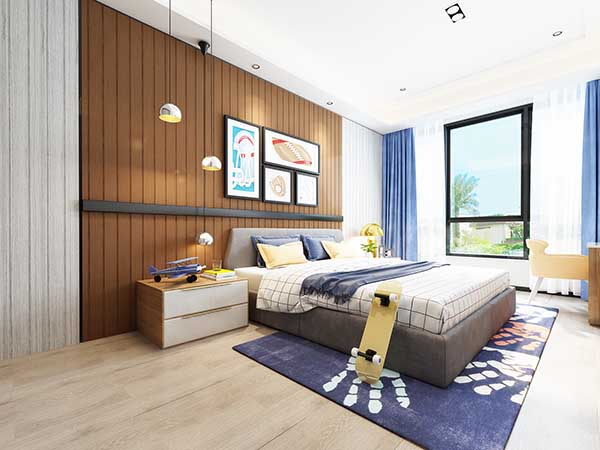
Composite Wall Siding and Your Health
When it comes to home construction and interior design, health considerations have surged to the forefront. Homeowners are increasingly conscious of the materials they introduce into their living spaces, particularly concerning their potential health implications. In this context, composite wall siding has emerged as a popular choice, but if WPC good for health?
1) Guarding Against Mold and Mildew
A standout feature of composite wall siding is its resistance to mold and mildew. In damp and humid conditions, traditional materials might succumb to fungal growth, which can have detrimental health effects, particularly for those with respiratory issues or allergies. Composite sidings, with their unique blend of materials, are less prone to retaining moisture, significantly reducing the risk of mold and mildew.
2) No Splinters, No Worries
Safety is an integral aspect of health, and here too, composite wood cladding for houses shines. Unlike natural wood that might splinter over time, composite materials ensure a smooth surface. This is particularly beneficial in households with children, ensuring they can play freely without the risk of painful splinters.
3) VOCs and Indoor Air Quality
A lingering concern in the realm of construction materials is the presence of volatile organic compounds (VOCs), particularly formaldehyde. High concentrations of these compounds can compromise indoor air quality and pose health risks. It's worth noting that not all composite wall sidings are created equal in this regard. MATECO WPC panels, for instance, stand out from the crowd. These panels are not laminated, eliminating the need for glue in their construction. As a result, homeowners can be assured that there's no formaldehyde issue, ensuring a healthier living environment.
Comparing Composite Wall Siding with Traditional Options
Traditional sidings like pure wood or vinyl have their merits. However, composite wall siding offers a blend of longevity, aesthetic appeal, and health benefits that some traditional materials might lack. For instance, while wood has a classic charm, it's susceptible to pests and rot; vinyl might warp or fade over time.
Internal Link Suggestion: Link to a comparison chart or article detailing the pros and cons of various siding materials.
WPC Wall Cladding vs Wood: https://matecowpc.com/comparison.html
If you are looking for a WPC manufacturer, MATECO WPC will be your best choice.
Website: https://www.matecowpc.com
WhatsApp: +86-13380085620
Email: info@matecowpc.com




